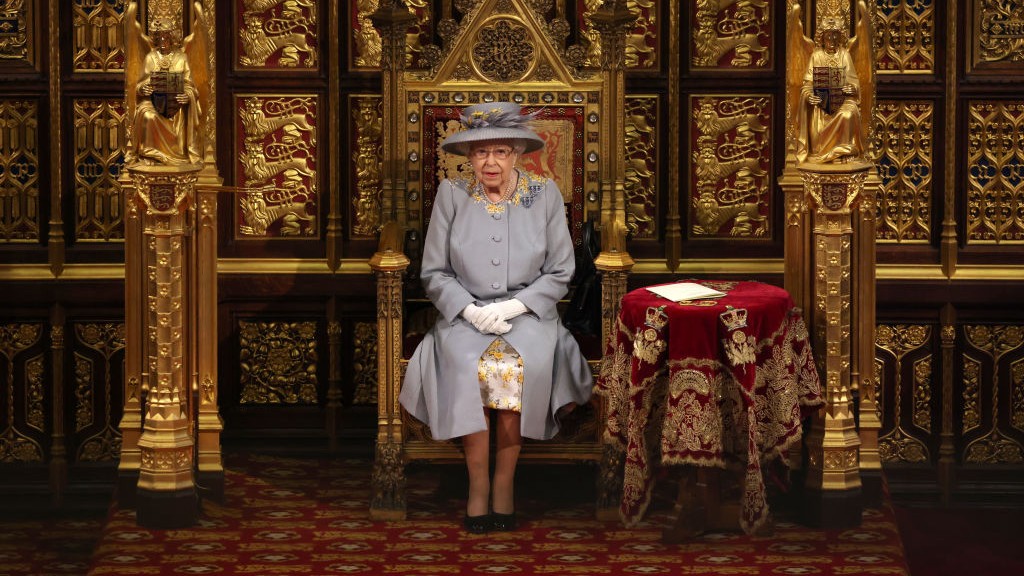The Queen Could Technically Dissolve Parliament If She Wanted To
In fact, she does it pretty regularly.

The Queen seems like a powerful lady, but more in the sense that she carries some serious gravitas. She's the literal Queen of England after all. But sometimes it's hard to tell whether that gravitas comes with any control. But according to The Sun, the Queen does have one major power: Dissolving Parliament.
To be clear, that doesn't mean she can get in a group-chat feud with her MP besties and then get rid of the whole thing. Rather, it's an important symbolic gesture that nods to Parliament's traditional connection with the monarchy that, historically, occurred at the end of every term.
Here's how it works now: Every five years, 25 days before the general election, the Prime Minister visits the Queen and asks her to dissolve Parliament so that the public is able to vote for new representatives. This action, should she accept it (she doesn't have to!) dismisses all the MPs in government and gives the go-ahead for a general election to take place.
An election can also be called outside of those five year terms under some circumstances too. Under a 2011 law, a general election could be called if doing so got enough votes in the House of Commons (2/3 of the House, not unlike the majority required to trigger certain votes in the U.S.) or if the government lost a no-confidence vote—two scenarios that aren't impossible to see, but are difficult. The last time such an election was called occurred in 2019, and Boris Johnson won. Then in 2022, the Dissolution and Calling of Parliament Act was passed, allowing snap election to be called once again.
The Queen, in a way, has to give her blessing for an election to take place, which she'll generally "allow" as long as it doesn't breach any constitutional conventions. She can also refuse to dissolve Parliament under the terms of the Lascelles Principles, which, per The Sun, "is a constitutional convention that allows the sovereign to refuse if the existing Parliament is viable; if a general election would be detrimental to the country; or if the sovereign can 'rely on finding another PM with a working majority in the House of Commons.'"
Of course, the Queen is supposed to remain politically neutral—something that is growing increasingly difficult with the tumult in English politics at the moment. It was unclear whether Boris Johnson would actually step down from power after his resignation as Prime Minister position last week following scandals and resignations from MPs in his party. According to Newsweek, could have held onto power if he was willing to call a snap election and let the people decide to keep him in office—but the Queen would still have to give the OK to dissolve Parliament so that the election could take place.
In short, it would have created a political headache for the Queen. Fortunately, it didn't come to pass and the Queen can keep her hands immaculately clean.
Get exclusive access to fashion and beauty trends, hot-off-the-press celebrity news, and more.
Marie Claire is committed to celebrating the richness and scope of women's lives. We're known for our award-winning features, thoughtful essays and op-eds, deep commitment to sustainable fashion, and buzzy interviews and reviews. Reaching millions of women every month, MarieClaire.com is an internationally-recognized destination for celebrity news, fashion trends, beauty recommendations, and renowned investigative packages.